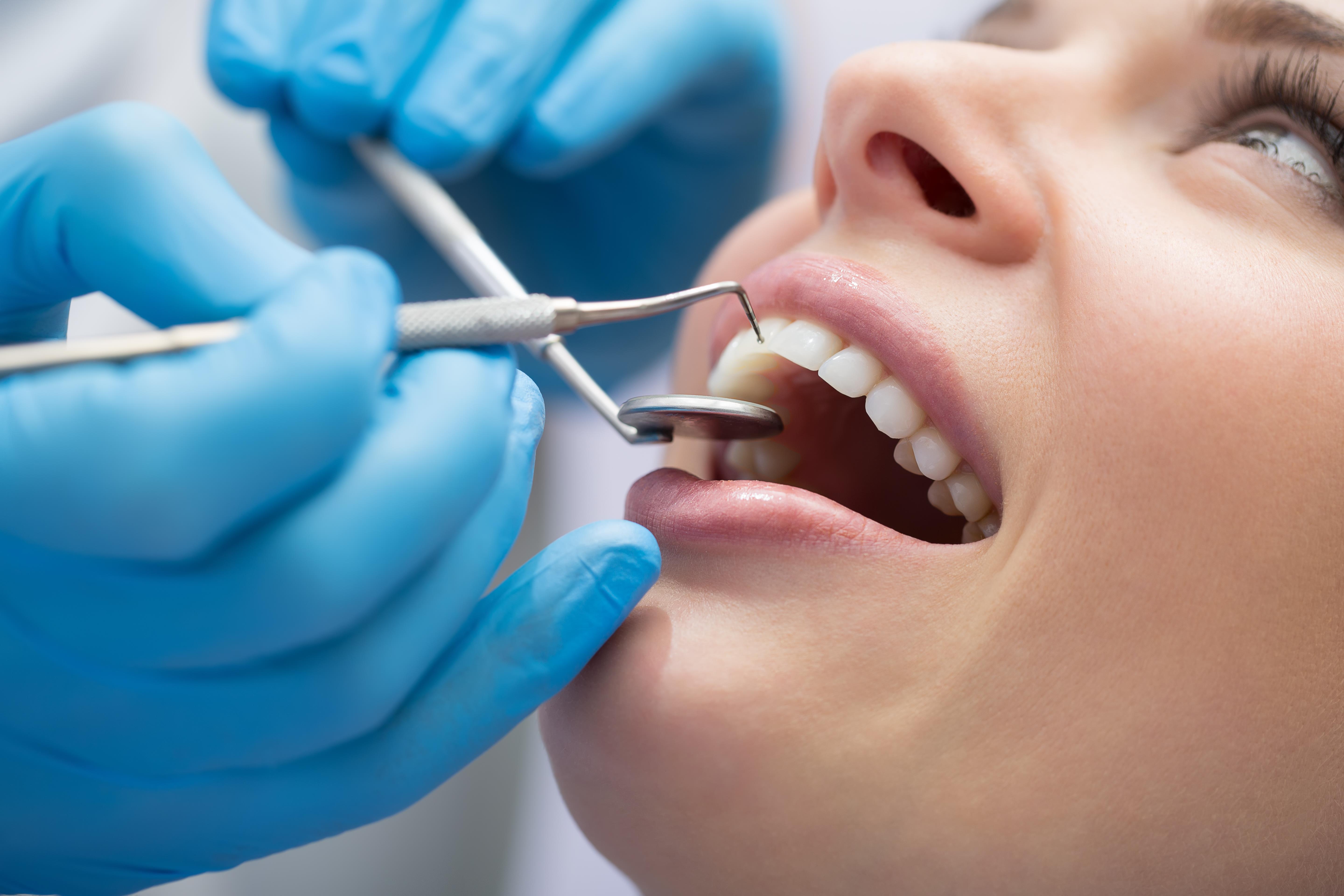Your Overview to Selecting the Right Dentist Eugene OR for Quality Solution
Your Overview to Selecting the Right Dentist Eugene OR for Quality Solution
Blog Article
Explore the Array of Dental Issues Dentists Typically Take Care Of
Dental experts are charged with addressing a broad spectrum of dental problems, each calling for specialized knowledge and strategies. From the common problem of dental caries brought on by microbial activity to the much more dangerous development of gum condition, oral professionals need to be adept at very early detection and treatment. Tooth sensitivity, frequently resulting from used enamel, adds one more layer of intricacy, while the very early identification of dental cancer can be life-saving. Additionally, misaligned bites require personalized therapy plans to boost both performance and looks. What specific methods do dental experts employ to manage these varied difficulties efficiently?

Tooth Cavities and Dental Caries
Dental caries, likewise known as dental decays, are caused by the demineralization of tooth enamel due to acid-producing germs in the mouth. If left untreated, cavities can lead to significant dental complications, including infections and tooth loss.
To diagnose dental caries and dental cavity, dental practitioners employ a combination of visual evaluations, oral X-rays, and in some cases laser fluorescence gadgets. Treatment options vary relying on the intensity of the decay. Early-stage dental caries may be managed with fluoride therapies that help remineralize the enamel. For more sophisticated degeneration, a dental professional may require to get rid of the compromised tissue and restore the tooth with fillings made from materials such as composite material, amalgam, or porcelain.
Safety nets are extremely important in combating cavities and dental caries. Routine oral examinations, correct cleaning and flossing methods, and a well balanced diet reduced in sugary foods and beverages are basic methods that sustain dental health and lessen the risk of tooth decays.
Gum Tissue Illness
Gum disease, also referred to as periodontal illness, is a major dental wellness concern that impacts the cells bordering and sustaining the teeth. It begins with gingivitis, which is characterized by red, swollen periodontals that might bleed conveniently. If left without treatment, gingivitis can advance to periodontitis, a much more severe form of gum tissue condition that can cause missing teeth and damages to the jawbone.
Periodontitis takes place when plaque, a sticky movie of germs, solidifies right into tartar and collects below the periodontal line. This triggers the gums to draw away from the teeth, producing pockets that come to be contaminated. As the body's body immune system combats the microorganisms, the bone and connective tissue that hold teeth in place are damaged down. The risk factors for gum tissue illness include inadequate oral hygiene, smoking cigarettes, diabetes mellitus, and hereditary proneness.

Tooth Sensitivity
Beyond gum tissue condition, an additional typical dental problem that clients frequently experience is tooth sensitivity. Defined by a sharp, transient pain in action to stimulations such as hot, chilly, sweet, or acidic foods and beverages, tooth level of sensitivity can dramatically influence a patient's high quality of life. This problem generally develops when the protective enamel layer of the teeth becomes worn down or when the periodontals recede, subjecting the underlying dentin. Dentin consists of tiny tubules that connect to the nerve ends within the tooth, thereby transferring the agonizing sensations.
Numerous variables add to the development of tooth sensitivity. Hostile brushing, using unpleasant toothpaste, and the consumption of acidic foods and beverages can deteriorate enamel. In addition, oral procedures, split teeth, and gum tissue illness can subject the dentin. To minimize tooth level of sensitivity, dental experts might suggest using tooth paste created for delicate teeth, fluoride treatments to reinforce enamel, or oral bonding to cover revealed dentin. In serious instances, advanced treatments such as gum tissue grafts or root canals could be required.

Dental Cancer
Oral cancer cells, a serious and potentially dangerous problem, often flies under the radar in regular dental care conversations. This sort of cancer can impact any component of the dental tooth cavity, including the lips, tongue, cheeks, floor of the mouth, soft and difficult palates, sinuses, and throat. Early discovery is critical for effective treatment, yet several situations are diagnosed at advanced stages because of subtle preliminary symptoms.
Dentists play a crucial role in the early discovery of oral cancer cells. Throughout routine exams, they meticulously check visit our website out the mouth for unusual sores, relentless sores, or unusual lumps. They may additionally employ adjunctive testing tools such as light sources or unique dyes to recognize suspicious areas that are not noticeable to the nude eye.
Threat factors for oral cancer consist of tobacco usage, excessive alcohol consumption, human papillomavirus (HPV) infection, and prolonged direct exposure to the sunlight. Individuals are advised to report any relentless modifications in their dental health, such as dentist eugene oregon problem ingesting, unusual bleeding, or numbness, to their dental professional instantly.
Misaligned Bites
Misaligned bites, also understood as malocclusions, are a common oral issue that can dramatically influence both oral health and wellness and general lifestyle. These problems occur when the upper and reduced teeth do not line up correctly, bring about difficulties in biting, chewing, and even speaking. Malocclusions can be identified into numerous types, consisting of overbites, underbites, crossbites, and open bites, each providing unique obstacles that call for tailored treatment approaches.
The sources of misaligned attacks vary and can consist of hereditary aspects, very early loss of key teeth, thumb sucking, and injuries to the jaw. Signs commonly include discomfort or pain in the jaw, frequent biting of the internal cheeks, and a boosted danger of dental cavity and periodontal illness as a result of problem in maintaining dental hygiene.
Orthodontists and dentists utilize an array of treatments to resolve misaligned bites, from conventional dental braces and clear aligners to extra innovative procedures in severe situations. Early medical diagnosis and treatment are crucial to stop difficulties such as temporomandibular joint (TMJ) disorders and irregular wear on teeth. Via extensive analysis and tailored treatment plans, oral professionals play an essential function in dealing with malocclusions and improving people' oral feature and aesthetic appeals.
Conclusion
Cavities and tooth degeneration result from bacterial activity that endangers view website tooth enamel, while gum condition can intensify from gingivitis to severe periodontal problems. Tooth sensitivity includes pain from thermal stimuli, requiring particular care.
To detect dental caries and tooth degeneration, dental professionals use a mix of aesthetic examinations, dental X-rays, and in some cases laser fluorescence tools.Beyond gum tissue condition, an additional usual oral problem that clients regularly encounter is tooth level of sensitivity. Furthermore, oral procedures, broken teeth, and periodontal disease can expose the dentin. To mitigate tooth sensitivity, dental practitioners might advise utilizing tooth paste formulated for delicate teeth, fluoride therapies to enhance enamel, or dental bonding to cover revealed dentin - eugene dentist. Cavities and tooth degeneration result from microbial task that jeopardizes tooth enamel, while gum disease can intensify from gingivitis to severe periodontal problems
Report this page